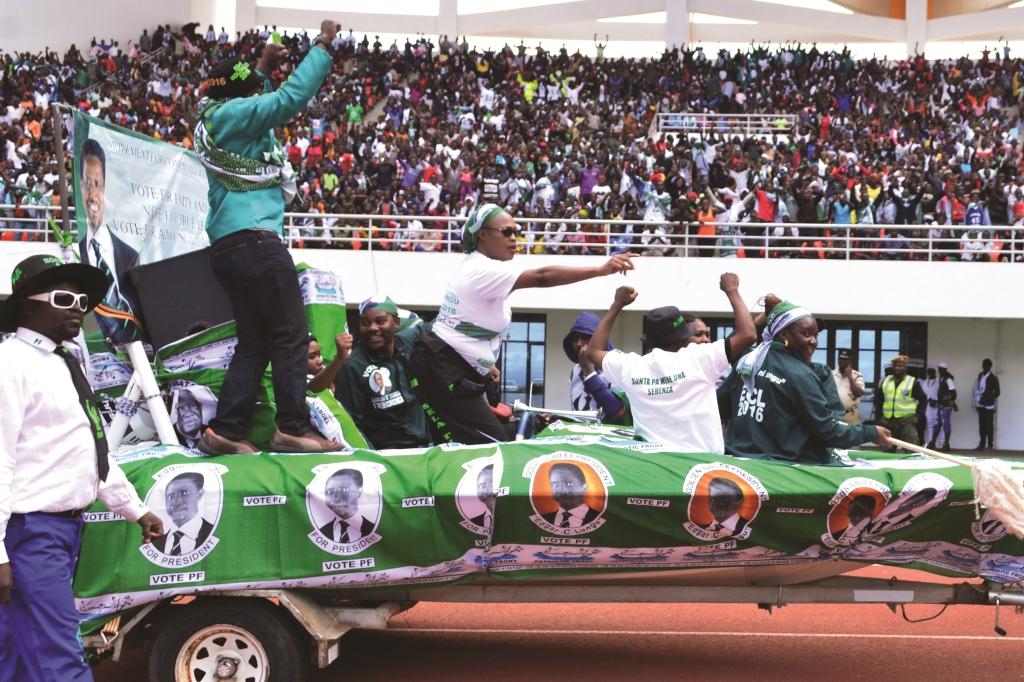Elections in Africa are not child’s play; if you run out of luck, you can pay with your life. This was true of Zambia’s Mapenzi Chibulu, an 18-year-old female opposition activist shot dead on the streets of Lusaka by police in political turmoil.
On July 9, in broad daylight, and a month before she was expected to join millions in voting for the next president, Chibulu lost her life. It forced the electoral body, the Electoral Commission of Zambia, to suspend campaigns for 10 days in Zambia’s capital.
As if the political turmoil was not enough, the copper producing country has done little to allay fears of investors, bearing hard currency, over a country that has struggled to diversify from mining.
The country, celebrating 52 years this year, is in turmoil as incumbent President Edgar Lungu, who has been in power for a year, is battling to stop opposition leader, Hichilema Hakainde, from wresting power. Lungu came in after President Michael Sata died in office. Hakainde is a businessman and a British-educated economist.
The two will face each other in a watershed election of August 11. Whatever the outcome, this election will be contested; whoever loses will claim electoral fraud after polls.
“For 50 years our nation has lived with peace, stability and freedom. There is no place for this type of violence in our society. I take a firm stance against any sort of violence in our democracy,” Lungu said in a statement.
To his opponents, his words ring hollow in the light of Chibulu’s death.
Political analysts say the electoral landscape, in the run up to the polls, has been punctuated by skirmishes between the ruling Patriotic Front and the opposition United Party for National Development.
“This comes as no surprise and we have been warning for months now that the political climate in Zambia was not conducive to free and fair elections and that the country risked losing its democratic reputation if authorities allowed this to continue,” says Gary van Staden, Senior Political Analyst at NKC African Economists.
“While the decision to suspend campaigning is a negative development, it at least provides some breathing space for authorities and political parties to put in place concrete measures to help take off the pressure that has been building over months now and threatens the credibility of the poll. The suspension of campaigning is the lesser of two evils but it remains an evil and any attempt to extend the suspensions will be unacceptable.”
While the election will pass, the challenges facing Zambia will not. Economists warn that politicians should not make it worse.
Herryman Moono, an economist from Economics Association of Zambia, says the unfolding political developments, marred by violence and government pressure on private media, has created political tension.
“The excessive use of force by the Zambia police, who are on record of cancelling opposition party rallies and recently the use of live ammunition leading to the killing of an opposition party supporter, while injuring others, is raising concerns about the security of the nation as we approach elections,” says Moono.
“These developments are creating anxiety among the local and international community. Should these continue, Zambia will slowly be perceived as a risky investment destination which has a strong and negative bearing on foreign direct investment in the short to medium term. An elevated risk profile arising from electoral violence can easily lead to subdued economic growth as investments – both local and international – dwindle.”
Moono adds that, beyond a damaged reputation and being a low grade investment destination, the Zambian currency would, in the midst of an electoral crisis, negatively affect the Zambian Kwacha which has been extremely volatile and poor-performing the past few years.
Thato Motaung, Associate Executive Director at the African Democratic Institute, says, to date, Zambia has experienced fairly peaceful and successful transitions of power; showing a promising trait of embracing the democratic will of the people.
“The key issues facing the build-up to Zambia’s election are mostly rooted in this insecurity. There is a large vocal citizenry, vigorous independent media, paired with a well-organized opposition; a combination that leaders often perceive as threatening. Hence we see the iron fist emerge in raids, police brutality and censorship in an attempt to pacify the perceived threat.”
On August 11, we will know who will take the reins.
